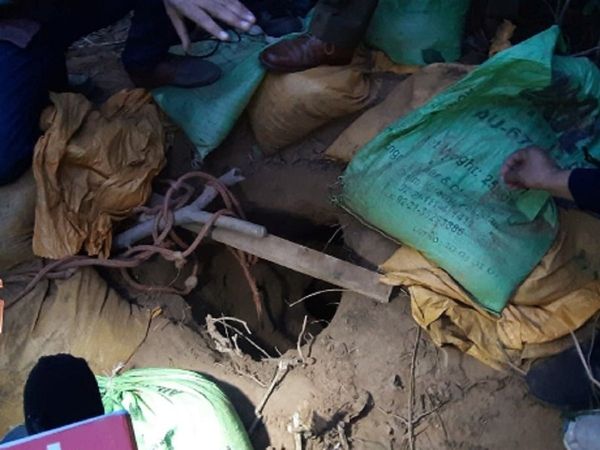
SOURCE: TIMES NOW
By killing four heavily armed Jaish-e-Mohammed (JeM) terrorists in Nagrota on November 19, Indian security forces foiled another attempt by Pakistan to carry out a major attack in Jammu and Kashmir. However, the aftermath of the encounter has also thrown fresh light on the use of tunnels by Pakistan-trained terrorists along the International Border (IB) and the Line of Control (LoC) to infiltrate into India.
In the latest incident involving JeM terrorists, the jihadis may have allegedly sneaked into Indian territory using a 180-200 metre long and 8 feet deep tunnel near the IB in the Samba sector, the Border Security Force (BSF) discovered.
The tunnel appeared to have been dug recently.
India has raised the issue with the international community and the P5 group of nations, providing concrete evidence of Pakistan’s involvement in the Nagrota incident.
Notes from the underground
The BSF, which is in charge of guarding India’s borders in Jammu and Kashmir, is combing the area to check if more such tunnels have sprung up at the IB.
In September, the Jammu and Kashmir police chief had said that the “digging of tunnels beneath the IB is part of the nefarious designs of Pakistan to facilitate infiltration of terrorists” into India. Director General of Police Dilbag Singh had said at the time that a tunnel 20-25 feet deep and 170 metre long had been discovered by the BSF in late August in the Galar area.
Analysts believe that with Indian security forces stepping up the pressure against terrorists in Jammu and Kashmir and with peak winter setting in, the Pakistan army may be using other tactics such as digging tunnels and drones to get the jihadi fighters and weapons across the border.
In 2016, a tunnel purportedly used by terrorists for cross-border infiltration was detected in the Samba sector, some 75-80 metres from the IB.
India’s options – lessons from Israel
The BSF has stepped up patrolling along the IB and in the Samba and Rajouri sectors of J&K with the intention of unearthing more such tunnels. Special tunnel-inspecting teams are engaged in the task. A security audit using state-of-the-art gadgets and satellite imagery is being carried out.
The nature of the tunnel which was discovered most recently in Samba has led some in the Indian security establishment to believe that Pakistan’s army engineers could have played a role in building it.
However, since this may well be part of Pakistan’s changing modus operandi, Indian security forces may need to look at this phenomenon more closely.
Israel’s example may be instructive here, as it has been dealing with tunnels used by militants at its borders for decades.
The Israeli Defence Forces (IDF) has destroyed dozens of tunnels used by Hamas and Hezbollah fighters. In recent years, however, the tunnels built by Hezbollah, the pro-Iran Islamist militant group based in Lebanon, have been more in focus because of their sheer size and sophistication.
In December 2018, the IDF started major anti-tunnel operations in the border town of Metulla, targeting tunnels built by Hezbollah.
One tunnel, in particular, was striking. Originating in a Lebanese house, it was reportedly 650 feet (200 metres) in length and ran 40 metres inside Israeli territory.
The Israeli military launched a special operation called Northern Shield, which involved the use of heavy machinery boring at several locations.
Later, the IDF discovered an even bigger tunnel, 80 metres deep, a kilometre long and going 77 meters into Israeli territory. The tunnel was equipped with infrastructure for electricity, communications and ventilation, the IDF said.
A total of at least six tunnels were discovered, all of which were destroyed. Operation Northern Shield went on for more than six months. Searching for tunnels and destroying them is now an integral part of the IDF’s operations, and the Israeli military has developed specialised tools and techniques to demolish the tunnels.
The tunnels at the IB are still quite basic compared to the ones built by Hezbollah, but India should be prepared technologically and operationally to counter a possible surge in tunnel-building activity by Pakistan.



